RIE Parenting: What It Is, How It Works, Pros & Cons
Parenting is not an easy task. If you’re a new parent, you know what we are talking about. There’s a LOT that goes into raising kids, and it involves sleepless nights, too! The initial years are the hardest, and while changing diapers, cleaning the mess, putting the baby to sleep, and handling the tantrums, most parents don’t even know what kind of parenting approach they are following, and if there is a certain approach that might work better with their child. Whether you have a needy newborn or a testy toddler, and you are looking for a new parenting approach that could help you sail through parenting, we suggest giving RIE parenting a chance. Who knows, you might find it suitable?
Many parents today are considering the RIE parenting approach. RIE parenting method is not a new concept; it’s a time-tested method to encourage children to develop and mature emotionally in a healthy way. If you want to find out what it’s like for your kids to naturally grow, learn, and play, then you might want to give this technique a try! We discuss more regarding the subject, its practices, and philosophy below.
What Is RIE Parenting?
RIE stands for ‘Resources for Infant Educarers’. RIE (pronounced as “rye”) parenting is the parenting method that encourages parents to treat their child as an individual and pay attention to their emotional and cognitive needs. The RIE philosophy for parenting was founded by Magda Gerber, an early childhood educator. While travelling from Los Angeles to Hungary, she learned that kids learned best when they are given a safe, relaxed, and emotionally connected environment (1). The whole principle of RIE parenting is based on giving respect to children; for instance, not picking a baby up without telling them prior, talking directly to them and not over them, and giving them time to give a response (2).
Respect is the Guideline of RIE’s Philosophy. The Educarer shows respect, for example, by not picking up an infant without telling him beforehand, by talking directly to him, and not over him, and by waiting for the child’s response.
How Does It Work?
Curious to know how RIE parenting works? Here’s how it can work for you!
1. You Let Your Child Explore and Discover
As per this parenting technique, parents need not teach their kids to learn new things. It emphasises the idea of slowing down and letting children take time to explore their surroundings. Kids are naturally curious, and the RIE method helps them take advantage of that curiosity. Even when it comes to something as simple as changing diapers, you can give them a choice by letting them lift their legs and learning how to change. You act as a guide, not as someone who gives orders (3).
2. Communicate With Your Child
When you’re changing your child’s diapers, feeding them, or introducing them to a new game or activity, you must act as a narrator. You should tell your baby what you’re doing, what to expect, and more. That way, they will know what to expect and will be prepared for the same. By thoughtful narration, adding in emotions and feelings to every stage of the learning process, your child picks up on cues and behaviours and learns naturally. It’s like flowing in and out from one step to the next.
3. You Let Your Child Express Their Emotions
Sometimes parents panic when they see a crying toddler or infant. They rock the baby, bounce him/her, and do whatever it takes to cheer them up and make them stop crying. Although, as parents, you may think of it as a normal response, kids perceive it differently. By asking them to stop crying, you let them know that it’s not okay to express those emotions. RIE parenting, on the other hand, allows kids to feel pain, grief, happiness, joy, and a host of various emotions. When your child feels sad and wants to cry, you let them cry and do not prevent it. You let them know it’s okay to feel that way, and in this manner, they learn not to bottle up their feelings and cope healthily.
4. Be a Role Model for Your Child
In RIE parenting, you don’t merely teach your kids. You teach them by example. Parents who use the RIE parenting style often take care of themselves, exercise, and stick to their schedules. Kids emulate them. And when it comes to punishments, there aren’t any. You enforce boundaries instead. For example, if your child skimps on sleep, they will be told to wake up anyway, despite the discomfort. This teaches discipline instead of punishments so that they learn from their experiences and don’t do it again (or at least don’t do it that often).
Ways to Implement RIE Parenting
Here are a few ways to implement RIE childcare techniques in your everyday parenting routine.
1. Set Aside Time for Solo Play
One of the most important cornerstones of RIE parenting is giving your child the freedom and creative space to explore their interests. This means scheduling enough uninterrupted time for them to do whatever they want. Children learn new skills and explore what piques their curiosity. By allowing them room for solo play and activities, you foster a healthy environment for self-learning and self-exploration.
2. Spend Time Observing Your Child
As a parent, it’s your duty to learn more about your kids if you want to learn how to coach them effectively and impart valuable life lessons naturally. This means less talking and more paying attention to what they’re doing when they’re engaged with self-learning.
3. Consistency Is Key
Consistency is a big pillar of RIE parenting. If you’re setting rules, schedules, or anything new, be sure to stick to them yourself, too, no matter what. Stick to your timelines and reward your children for good behaviour and accomplishments. Kids will be naturally motivated this way and learn faster by seeing you in action as well.
4. Collaborate With Your Child
One of the best parts about RIE parenting is that you don’t just teach your child, you teach yourself, too. Do this – the next time you give them a bath or change their diapers, you carry out the first action and let them do the next. When your child gets a bit older, you can add more responsibilities to these tasks, like sending them shopping for groceries and helping you prepare the meals you cook for them in the kitchen. You get the idea, but the gist is – you don’t do everything for them, you do it along with them and give them a role in it.
5. Be Your Child’s Best Friend
Another good way to implement the RIE parenting technique in your childcare routine is by becoming your child’s best friend. Listen to what your child says, pay attention to their feelings, and be that person who is there to listen and advise when they seek it. Being a best friend also means you play with your child often and indulge in the fun. Think about this – how would you treat another person kindly and help them develop themselves? You do the same for your child by guiding them gently and proactively taking part in their lives.
Advantages and Disadvantages of RIE Parenting
Here’s what you want to know about the pros and cons of RIE parenting for kids below.
Advantages
If you’ve already signed up for RIE parenting classes, you’d want the good news. Here are the following advantages your kids will get with this parenting style:
- Children develop faster – With RIE parenting, you’ll watch your kids develop really fast and pick up gross motor skills on their own. Children move around a lot and explore their environment, and movements like walking, crawling, hopping, and running are picked up easily through self-directed learning.
- Fosters Emotional Intelligence – Kids learn to cope healthily through RIE training and engage with their emotions on a deeper level. They become emotionally healthy when they grow up.
- Boosts Cognitive Development – Since your children will be exploring more of what they like, they will be constantly learning new things. This ends up boosting cognitive development and also hones their creative problem-solving and analytical skills.
- Improves Creativity – Kids tend to think outside the box at a young age. RIE parenting gives them space for that and doesn’t restrain it.
- Develops Imagination – Through art, crafts, exercise, music, and creative activities, RIE parenting stimulates the imagination. Kids don’t just stick to the lessons in books; they learn from life around them. If you want them to learn hands-on, this is one of the biggest advantages RIE parenting offers.
Disadvantages
Although there are many advantages to this style of parenting, we have to admit that just like with pros and cons to everything, the RIE approach comes with its own set of disadvantages too:
- Lack of touch – Kids feel safe and at ease when they’re touched, cradled, and soothed with words. RIE parenting emphasises letting them cry out their feelings, so this is a real disadvantage there. Kids miss out on parental comfort.
- Too Much Free Time – Sometimes, kids may relax a bit too much and not be as productive as you’d think. By giving them too much free time, you don’t teach them the meaning of deadlines or setting specific goals.
- You Listen To Them – If your child is growing too intelligent and becoming aware, they might take advantage of this. You might end up listening to them more instead of being a mentor. This isn’t necessarily a bad thing, but it does come with its set of disadvantages, thus impacting the learning process.
- They Might Fail to Meet Developmental Milestones – Again, as we said before. By giving them no goals or deadlines or specific lessons like regular preschool parenting, they might develop in different areas of learning a bit too late.
- They Take the Benefits of RIE Parenting for Granted – Since there’s no structure, competition with other kids, or true discipline that comes with traditional parenting, kids may take its benefits for granted, which may stunt their growth and personal development.
FAQ
1. Is RIE parenting suitable for my child?
RIE parenting may not be useful for everyone, but you can give it a try and decide whether it works for you or not. Exploring different parenting approaches in the beginning might feel stressful, but it’s a part of finding the best approach for your child.
That pretty much covers the basics of RIE parenting. Now that you know how it’s helpful and its pros and cons, you can start out by consulting other parents and see how it has helped them. The best life lessons are delivered through experience, and the same holds true for this style of parenting, too.
References/Resources:
1. RIE – The Educaring Approach
2. Magda Gerber Legacy – FIRST RIE BROCHURE
3. Taylor & Francis Group – The Educaring Approach of Magda Gerber
Also Read:
Authoritarian Parenting
Permissive Parenting
Attachment Parenting
Positive Parenting
Was This Article Helpful?
Parenting is a huge responsibility, for you as a caregiver, but also for us as a parenting content platform. We understand that and take our responsibility of creating credible content seriously. FirstCry Parenting articles are written and published only after extensive research using factually sound references to deliver quality content that is accurate, validated by experts, and completely reliable. To understand how we go about creating content that is credible, read our editorial policy here.







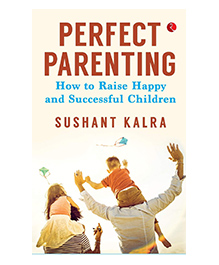

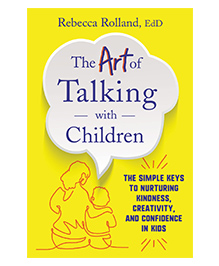
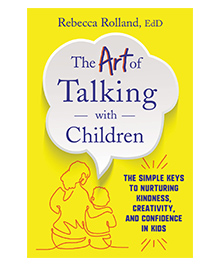
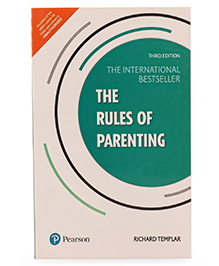


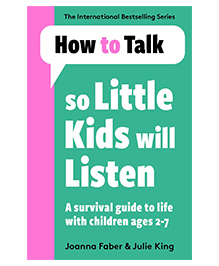
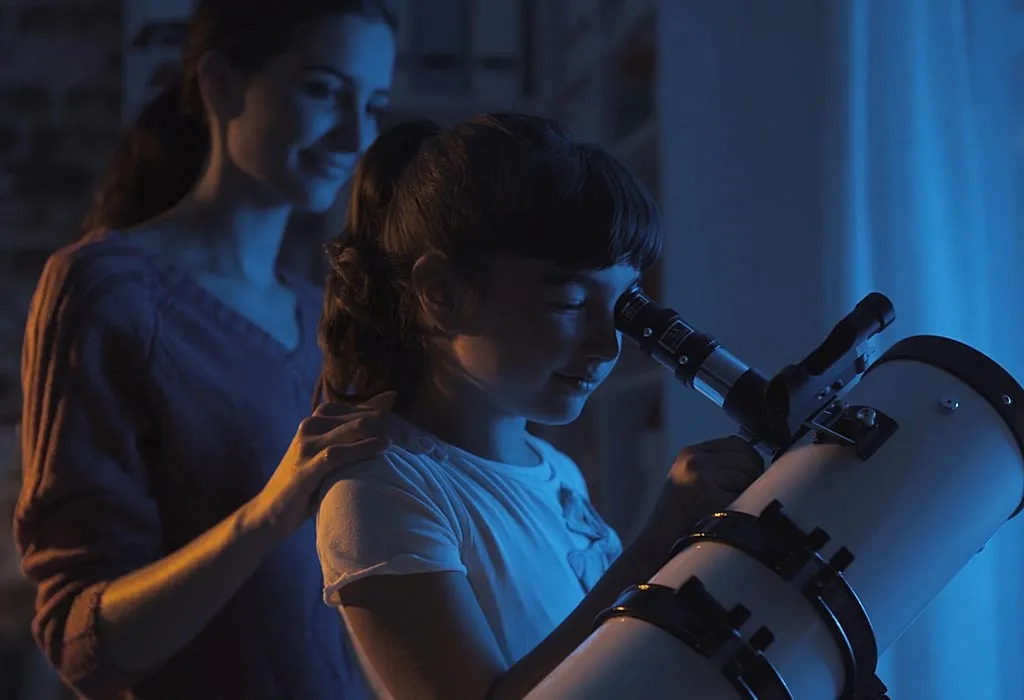







.svg)


















